Office of Informal Conflict Management (OICM) Workshops and Programs – Month of November
Meet your practitioners!
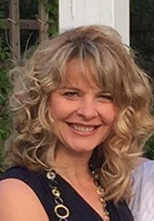
Jacqueline Allen is located in Fredericton, NB and manages a team of ICM Practitioners located throughout the country. She joined the OICM team in 2008 and brought with her an extensive labour relations background. During the last 32 years, Jacqueline's primary vocation has been with the Public Service.
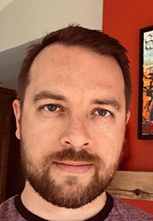
Steve Bouchard has been an informal conflict management practitioner at Employment and Social Development Canada for two and a half years. Over his 12-year career as a federal public servant, Steve has worked for the Canada Revenue Agency as an advisor in harassment/ discrimination complaint management, resourcing, and organization and classification.
Steve has a bachelor's degree in Psychology from the University of Montreal. In 2017, he completed the Third Party Neutral program at the Canadian Institute for Conflict Resolution at Saint Paul University. In 2019, he obtained his certificate in Professional Coaching from Coaching de Gestion, a school accredited by the International Coaching Federation.
Before joining the federal government, Steve worked in a psychiatric hospital as a mental health support worker and played an active role in de-escalating patient crises.
Steve is passionate about human relations and is excited to take you on and support you in reaching your goals.

Caroline Chenail has been an informal conflict management practitioner at the Office of Informal Conflict Management since October 2019. She arrived at ESDC in 2016, joining the Harassment Centre of Expertise where she handled formal harassment complaints. Before that, she spent almost 10 years at Indigenous and Northern Affairs Canada's Centre for Integrity, Values and Conflict Resolution, where she worked on cases related to values and ethics, formal harassment complaints and disclosures of wrongdoing under the Public Servants Disclosure Protection Act.
Caroline was the first graduate of the University of Ottawa's Honours Bachelor of Social Science in International Development and Globalization program. In 2017, she completed the Third Party Neutral program at Saint Paul University. She will soon begin working toward certification from the Coaching de Gestion school with a view to obtaining her International Coaching Federation Credential.
Caroline's career in the federal government began in 2005 at the Passport Canada call centre and the Ombudsman's Office.
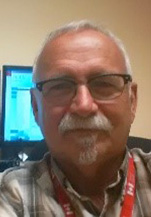
Mike Deveau took on a casual assignment with Employment and Social Development Canada on January 2014. He retired from Canada Border Services Agency on December 2012 and from March 2008 to December 2012, was the National ICMS Coordinator for ICMS for the Canada Border Services Agency. From April, 2006 to April 2008 he was the ICMS Advisor/Coordinator for the Canada Border Services Agency Atlantic Region, covering all four Atlantic Provinces. From December 2003 to April 2005 Canada Customs and Revenue Agency (CCRA) became two separate agencies; Canada Revenue Agency (CRA) and Canada Border Services Agency (CBSA). From December 2003 to April 2005 he continued his role as Alternate Dispute Resolution Advisor (ADRA) for both organizations, reporting directly to HR of CRA. In March 2002, he attained the position of Alternate Dispute Resolution Advisor (ADRA) for the Atlantic Region for Canada Customs and Revenue Agency (CCRA). Prior to 2002, he worked in various roles for Canada Customs and Revenue Agency not relating to Informal Conflict Resolution.
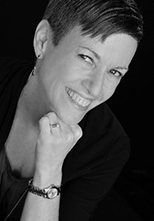
Christine Dutrisac has accepted a casual position as an informal conflict management practitioner, mediator and coach with the Office of Informal Conflict Management (OICM) at Employment and Social Development Canada in February 2021, after retiring in April 2020, after 13 years with the OICM of the Department and more than 35 years with the Federal Public Service. During her career, before joining the OICM, she occupied various positions in human resources, worked with Labour Relations, has been a Manager and worked closely with Union Representatives.
Christine has a bachelor's degree in Psychology from the University of Ottawa, studied also at UQO in Administration and Industrial Relations. She completed the Third Party Neutral program at the Canadian Institute for Conflict Resolution at Saint Paul University, has been trained in Group Conflict interventions and obtained her certificate in Professional Coaching from Coaching de Gestion. She has been studying all her life, especially in communication and in self-awareness.
Christine always was and continues to be passionate about human beings and all its facets. She will be pleased to meet you, to listen to you and to guide you at finding resolution to your conflictual situations.
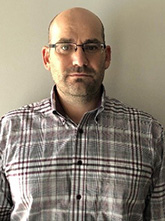
Eric Fast is a Practitioner with the Office of Informal Conflict Management, recently reaching his 5 year milestone with the Government of Canada. Eric Fast holds a Master of Arts degree and a Bachelor of Arts degree in Dispute Resolution, and is a certified mediator and certified coach, providing coaching, mediation, group facilitation, stakeholder dialogue and dispute resolution training. Eric has worked in the field of dispute resolution for over a decade, and assisted in a multitude of processes including interpersonal, group, and multi-stakeholder situations with public, private and non-profit sector clients.
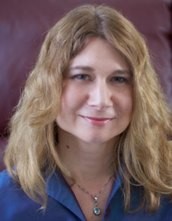
Brenda Froese is a certified coach, counsellor and mediator. Throughout her 26 year career with the federal government, her focus has been on helping people to communicate better, starting as a psychologist with Corrections Canada and later joining ESDC as a Wellness Program Counsellor and Chief of Learning. Brenda has been in her current role as a conflict management practitioner with the Office of Informal Conflict Management (OICM) since its inception about 14 years ago. Within her depth & breadth of experience, Brenda enjoys working proactively, coaching people to help them discover their best path forward.

Martin Gignac has been an informal conflict resolution mediator, practitioner and coach for 8 years. Before that, he worked for over 14 years as a labour relations and occupational health and safety advisor for the federal government, the health care system, and private-sector companies including Raymond Chabot Grant Thornton. Martin is passionate about coaching and enjoys helping managers and employees achieve their goals. His clients and colleagues describe him as attentive, empathetic, authentic and demanding, and speak to his wholehearted commitment to serving the people with whom he works.
Martin has worked with various levels of management for over 20 years. He is always seeking to improve his professional practice, broaden his knowledge and understand the issues faced by managers at all levels of public administration. He embarked on graduate studies in 2006 and obtained his Master in Public Administration in Management in 2011. Martin is looking forward to working with you and helping you reach your full potential.
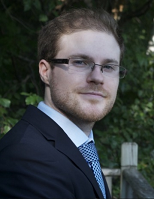
Samuel Henri is an Informal Conflict Management Practitioner with Employment and Social Development Canada (ESDC) and an accredited mediator listed by the Quebec's Department of Justice.
Driven by the need to help individuals resolve their conflicts in a humane and inclusive manner, Samuel is currently completing a Master's degree in Alternative Dispute Resolution (ADR). He specializes in online conflict resolution and interactions within virtual teams.
A lawyer by education, Samuel has seen the limits of judicial conflict resolution. Through his training in the ADR field, he was able to reorient his career to promote informal conflict management and values such as self-determination, open communication, collaboration and access to justice.

Niki Kux-Kardos has been a practitioner and peace builder for over 12 years, working primarily with federal government and private family enterprise across diverse industries. Raised in a family business, her own succession challenges led her to conflict management and leadership development, to help navigate the competing values systems underlying operational and relational success, particularly across generations.
Living and working abroad since a young age, Niki realised her early passion for communication and connection, building bridges amidst difference in language, culture and upbringing. After pursuing a degree in anthropology and later business, she completed certificates in conflict resolution, restorative practices and executive coaching, as well as a Masters in Interdisciplinary Studies focused on authentic leadership and intercultural coaching.
Known for her energetic, practical and engaging approach to training, Niki invites personal self-awareness and professional development with supportive candor and clarity. An international speaker, she is also associate faculty for the Justice Institute of B.C. and Royal Roads University, and is an active member of the Society for Intercultural Education, Training and Research and the International Coach Federation.

Tara Kowalski has been a practitioner for over 11 years in private and public sectors. Learning, compassion, bravery, creativity, evolution and playing are key values she brings to her practitioner role. She has an interdisciplinary Masters (with a focus in leadership, change management and conflict resolution), and a BA and a few certificates (mediation, adult education, business management, emotional intelligence and coaching). She also likes to learn informally with animals, small informal learning groups, self-research (currently collecting stories and research on loneliness in the workplace) and most recently, she is learning about the value grieving and its significance to living. Tension and release engage our evolution… embrace the challenge as it offers valuable benefits to you and your relationships.
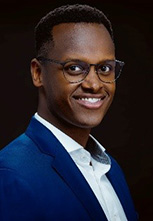
For two years, Olivier Ndorere has been an informal conflict management practitioner at Employment and Social Development Canada, where he has also worked as a harassment complaint management and labour relations advisor.
Over his 14-year career in the federal public service, Olivier has worked as a strategic staffing advisor for Health Canada's executive offices, including the Office of the Minister of Health.
He has a bachelor's degree in Industrial Relations from the University of Montreal and has completed the Third Party Neutral program at Saint Paul University. In addition to his work in the federal government, Olivier offers professional coaching services to private-sector managers and entrepreneurs. He has a particular interest in coaching businesses in the health and sports industries.
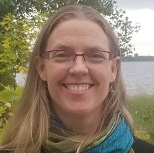
Marie-Noëlle Pelletier has been a practitioner at ESDC's Office of Informal Conflict Management for 10 years. She regularly works as a practitioner, trainer, facilitator, mediator, coach and mentor. Marie Noëlle has a master's degree in Cross-Cultural Psychology from the University of Sherbrooke and is a member of the provincial professional body, the Ordre des psychologues du Québec. She also has Coach certification from the Coaching de Gestion school.
Over the years, Marie-Noëlle's focus has shifted to one on one coaching, group coaching and coaching of management teams. She notes the powerful, positive impact this work has had on her coachees' workplaces and overall well-being. Before joining HRSDC (as ESDC was known at the time) in 2004, she worked as a psychologist and counsellor for employee assistance programs in both the private sector and our department. She is especially passionate about wellness, healthy workplaces, organizational effectiveness, respectful and effective communication and cultural diversity, and is dedicated to helping her clients work together and co-operate for the well being of all.
Marie-Noëlle is welcoming, empathetic, inclusive and respectful. She is known for her listening skills, attentiveness and authenticity. With these qualities and her approach to coaching, she helps her coachees continuously reach new heights.
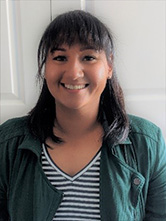
Janelle Orzoli has been a Conflict Management Practitioner with the Office of Informal Conflict Management at ESDC since April 2019. Prior to that, she was an Integrity Services Investigator with Integrity Services' Temporary Foreign Worker Program since 2015. She has an Honours' Bachelor of Arts in Political Science from the University of Toronto, and a Master's in Peace and Conflict Studies from the University of Waterloo. She also holds certifications in Conflict Management and Leadership, Culture Diversity and Conflict Management, and Non-Violent Principles.
Janelle's research interests explore the impact of trauma on the act of reconciliation, focusing on Canada's First Nations as a model. Additionally, her work with restorative justice principles has aided in the creation of conflict resolution workshops implemented by the Waterloo Catholic District School Board and the Grand Valley Institution for Women. Janelle serves as a volunteer mediator with Community Justice Initiatives, Dixie Bloor Conflict Resolution Centre and St. Stephen's Community House; working with their Victim/Offender, Family and, Workplace Mediation Programs.
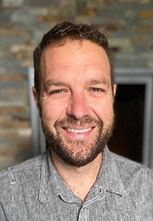
Luc Ouellette is a Conflict Management Practitioner with the Office of Informal Conflict Management (OICM) at ESDC since January 2020. Prior to that, since 2014, he was a Senior Labour Relations advisor at the same department and had the same role at Fisheries and Oceans Canada from 2011 to 2014. Before joining the Federal Public Service, Luc worked as a job counsellor for citizens with judicial records in a community based organization.
He is bilingual and has a bachelor's degree in psychology and criminology. Luc completed a Third Party Neutral (TPN) course in 2019 with the Canadian Institute for Conflict Resolution (CICR) and is currently undertaking training to become a certified coach accredited by the International Coaching Federation (ICF).
He is passionate about human relationships and strongly believes that effective communication (even difficult ones) is an art that everyone can improve with self-awareness, courage and day to day practice. Respect and self-discovery will be at the core of your journey should you obtain some services from him.
Long Description
Office of Informal Conflict Management (OICM) Workshops and Programs – Month of November
Learning to Listen (EN) (November 2, 1:30 p.m. to 3:30 p.m.)
Listening is the key bonding agent that integrates the various qualities and attributes to "effective and affective" communication.
This workshop identifies the layers and complexity of listening, the challenges and benefits to listening, and offers insight, strategies and tools to help you take action in the further development of your approach to listening.
"Truly listening, attentive, and with care, is one of the simplest and most kind gifts we can give anyone." (John Bruna)
Working with Resistance in our Relationships (EN) (November 2 and 9, 10:30 a.m. to 12:00 p.m.)
This workshop provides information and strategies for working with the resistance we often encounter within ourselves or with others in our daily lives.
This workshop is divided into two modules:
- Module 1: What are resistance and defensiveness?
- Module 2: How to work with resistance and defensiveness.
Apprendre à écouter (FR) (le 3 novembre, 9h00 à 11h00)
L'écoute est l'agent principal de liaison qui intègre les différentes qualités et attributs de la communication « efficace et affective ».
Cet atelier a été conçu pour vous permettre d'identifier les différentes composantes, la complexité, les défis ainsi que les avantages de l'écoute. Ce produit propose des idées, des stratégies et des outils pour vous aider à développer votre capacité d'écoute.
« Une écoute véritable et attentive est l'un des cadeaux les plus simples et les plus réconfortants que l'on puisse offrir à quelqu'un » (John Bruna).
Building a Culture of Trust (EN) (November 3, 1:30 p.m. to 3:30 p.m.)
Trust underlies interpersonal and business conversations. Using an interactive format, this course examines:
- Trust as a business conversation;
- The types of trust;
- A model of specific behaviours that leaders can use to discern their own and their teams' current level of trust; and
- Areas for focus, with a lens on working in a virtual environment.
The objectives of this workshop are to gain awareness and knowledge of the importance of trust in a working environment.
Having Productive Conversations (EN) (November 4, 1:00 p.m. to 3:00 p.m.)
These sessions, building on other OICM training, which focuses generally on difficult conversations, provides a more targeted approach and focus on mental health (MH) related conversations specifically – with related scenarios provided for discussion and individual/group practice.
These sessions can assist with the preparation of MH related discussions with employees, help to reflect on the outcomes of prior manager-employee discussions.
Comportements en situations de conflits (FR) (le 9 novembre, 13h30 à 15h00)
Cet atelier permet de comprendre davantage vos comportements et ceux des autres lorsqu'en situation de conflits.
Il vise également à explorer des stratégies afin de réagir efficacement selon les circonstances.
Bâtir une culture de confiance (FR) (le 16 novembre, 10h00 à 12h00)
La confiance sous-tend les conversations interpersonnelles et professionnelles. Utilisant un format interactif, cette séance examine:
- la confiance comme sujet de conversation d'affaires;
- les types de confiance;
- un modèle de comportements spécifiques que les leaders peuvent utiliser pour discerner leur niveau actuel de confiance et celui de leurs équipes; et
- des domaines de concentration, du point de vue du travail dans un environnement virtuel.
L'objectif de cet atelier et de sensibiliser et apprendre l'importance de la confiance dans un environnement de travail.
Behaviours in Conflict Situations (EN) (November 16, 1:30 p.m. to 3:00 p.m.)
This workshop will strengthen your understanding of your own behaviours and the behaviours of others in conflict situations. You will learn strategies to respond effectively irrespective of the circumstances.
Working with Resistance in our Relationships (EN) (November 17 and 24, 1:00 p.m. to 2:30 p.m.)
This workshop provides information and strategies for working with the resistance we often encounter within ourselves or with others in our daily lives.
This workshop is divided into two modules:
- Module 1: What are resistance and defensiveness?
- Module 2: How to work with resistance and defensiveness.
Brave Conversations (EN) (November 17, 1:30 p.m. to 3:30 p.m.)
"When we deny the story, it defines us. When we own the story, we can write a brave new ending." (Brene Brown).
Many of us experience an invisible tension between showing up and not wanting to hurt others' feelings. In order to overcome this tension, we need to step into bravery. Bravery embraces the reality that while we are likely to stumble in our communications, we allow ourselves to own and feel the discomfort that comes from this yet still we commit to trying again differently to change our narrative positively.
This workshop explores the value and qualities of brave communicators and offers a package of interlaced strategies to help us overcome the barriers that intercept the courage within us.
Office of Informal Conflict Management (OICM) 101 (EN) (November 18, 1:00 p.m. to 2:00 p.m.)
The objectives of this presentation are:
- Discuss what informal conflict management is;
- Learn about the services and tools offered by the Office of Informal Conflict Management (OICM); and
- Discuss the advantages of resolving conflict.
Learning to Listen (EN) (November 23, 10:00 a.m. to 12:00 p.m.)
Listening is the key bonding agent that integrates the various qualities and attributes to "effective and affective" communication.
This workshop identifies the layers and complexity of listening, the challenges and benefits to listening, and offers insight, strategies and tools to help you take action in the further development of your approach to listening.
"Truly listening, attentive, and with care, is one of the simplest and most kind gifts we can give anyone." (John Bruna)
Apprendre à écouter (FR) (le 24 novembre, 9h00 à 11h00)
L'écoute est l'agent principal de liaison qui intègre les différentes qualités et attributs de la communication « efficace et affective ».
Cet atelier a été conçu pour vous permettre d'identifier les différentes composantes, la complexité, les défis ainsi que les avantages de l'écoute. Ce produit propose des idées, des stratégies et des outils pour vous aider à développer votre capacité d'écoute.
« Une écoute véritable et attentive est l'un des cadeaux les plus simples et les plus réconfortants que l'on puisse offrir à quelqu'un » (John Bruna).
Building a Culture of Trust (EN) (November 25, 1:30 p.m. to 3:30 p.m.)
Trust underlies interpersonal and business conversations. Using an interactive format, this course examines:
- Trust as a business conversation;
- The types of trust;
- A model of specific behaviours that leaders can use to discern their own and their teams' current level of trust; and
- Areas for focus, with a lens on working in a virtual environment.
The objectives of this workshop are to gain awareness and knowledge of the importance of trust in a working environment.
Le rôle de l'attitude-coach dans nos communications (FR) (le 25 novembre, 9h00 à 12h00)
Développez une attitude-coach visant la gestion de situations difficiles en milieu de travail.
Communiquer est un art, du grand art. Et pourtant, malgré le fait que nous le ferons toute notre vie, nous n'avons jamais appris à bien le faire.
Pour le maîtriser davantage, il faut entrer dans la structure de communication de l'autre. Il faut saisir ce qui se passe entre l'émetteur et le récepteur, et la seule façon de bien saisir cette structure, est d'être curieux, de poser des questions et d'augmenter sa conscience.
Difficult Conversations (EN) (November 30 and December 7, 1:30 p.m. to 3:00 p.m.)
Difficult conversations are a normal, challenging and expected experience in the workplace. This workshop will provide participants with an opportunity to develop an effective approach in setting up a difficult conversation, and the opportunity to practise and develop new skills.
Module 1:
- Discuss why some workplace conversations become difficult.
- Consequences of avoiding or having a difficult conversation.
- Break down the components of effective communication in relation to attitude, skills and processes.
Module 2:
- Using real examples from the group, apply the learnings from module 1 in setting up a difficult conversation.
- Skills practice in setting up and having a difficult conversation.
